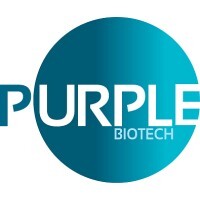Purple Biotech Ltd. (NASDAQ/TASE: PPBT), a clinical-stage company developing first-in-class, effective and durable therapies that harness the power of the tumor microenvironment to overcome tumor immune evasion and drug resistance, announced that it has entered into an agreement for the acquisition of Immunorizon Ltd., a private company developing potential multi-specific T and NK cell engager oncology therapies that selectively activate the immune response within the tumor microenvironment. The acquisition will provide Purple Biotech with an expanded portfolio of investigational tri-specific antibody compounds that target multiple antigens and offer the potential to further expand to additional targets.
Immunorizon’s lead asset is a conditionally-activated tri-specific antibody that engages both T cells and NK cells to mount a strong, localized immune response within the tumor microenvironment. The third arm of the lead compound specifically targets the Tumor Associated Antigen (TAA) 5T4, that is expressed in a variety of solid tumors and is correlated with advanced disease, increased invasiveness and poor clinical outcomes. 5T4 is a well-known target that has been validated by multiple pre-clinical and clinical programs. The drug candidates Purple Biotech is acquiring are differentiated from other multi-specific cell therapies targeting 5T4+ tumors by its cleavable capping technology, which confines the compound’s therapeutic activity to the local tumor microenvironment, and thereby potentially increases the anticipated therapeutic window in patients. The acquisition will also provide Purple Biotech with additional preclinical assets targeting other TAAs through this technology platform.
“We are delighted to add Immunorizon’s portfolio of tri-specific antibodies to our drug development pipeline,” said Gil Efron, CEO of Purple Biotech. “The acquisition of these assets highly fits our strategy of expanding our pipeline, and we believe that the acquired technology platform has the potential to expand to multiple additional development programs. This new technology is differentiated not only by the combination of the NK and T cell engagement, but also by the conditional activation at the tumor microenvironment, which we believe provides an opportunity for better therapeutic outcomes for cancer patients. Bi-specifics as a class have undergone multiple iterations of technological improvements that have culminated in a basket of approved and/or clinically de-risked assets with several recent industry partnerships that have formed around such platforms. Novel multi-specifics have seen increasing industry attention and we are excited with our first step into this field. We believe that we will be able to leverage the knowledge and expertise we have gained over the years through both preclinical and clinical development. We expect to advance the first of the newly acquired assets to an IND submission in approximately two years in parallel to our ongoing promising clinical programs from which we expect to report clinical data during this year.”

